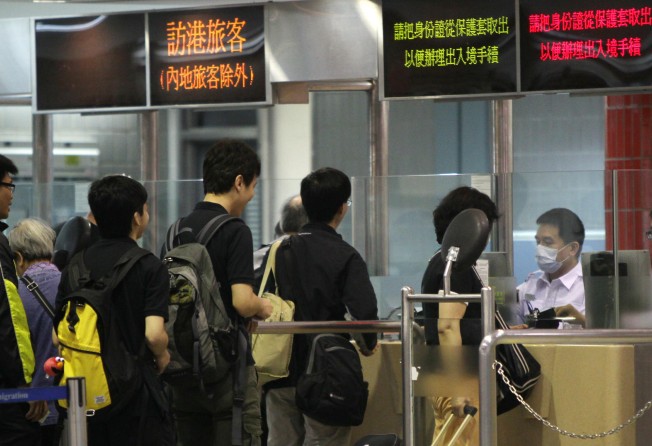Without social mobility, our city can go nowhere
Inequality will make us all more miserable, wherever we stand in the hierarchy

Hong Kong may have the most advanced urban mobility system in the world. But as far as social mobility is concerned, the city is certainly more still waters than rapids. An increasing number of Hongkongers are struggling with poverty. According to Professor Nelson Chow Wing-sun of the University of Hong Kong, approximately 1.3 million - nearly 40 per cent of the local workforce - could be classified as the "new poor" as they earned in the range of HK$10,000 to HK$20,000 a month yet could not claim welfare. The number was only about 1 million four to five years ago.
And more and more people feel poor as the wealth gap and income differences between the rich and the not-so-rich continue to widen. That certainly helps explain why Hong Kong is fast becoming a city of protests. Relative deprivation, the feeling of discontent when comparing what one has to what others have, is often cited by political scientists and sociologists as a major cause of social movements and deviance.
All this takes a heavy toll on Hong Kong and it's not just the poor and the relatively deprived that have to pay. Richard Wilkinson and Kate Pickett, co-founders of the Equality Trust, a British-based think tank, and authors of The Spirit Level: Why Greater Equality Makes Societies Stronger, argue that inequality not only erodes trust and is therefore socially corrosive, but also damages our mental health and distorts our personalities, regardless of where we are on the social spectrum.
Given our tendency to equate outward wealth with inner worth, where we stand on the social ranking system based on hierarchy and power seriously affects the way we see ourselves and treat one another. As we watch differences in material circumstances lead to greater social inequality and distances, our feelings of superiority and inferiority, dominance and subordination, intensify. While we use different social strategies to engage in status competition, unethical and narcissistic behaviour become more common at the top of the social hierarchy while depression, antisocial personality disorder and bipolar disorder occur more frequently at the bottom. In short, we are bound to be less nice and more miserable people in more unequal societies.
Like hope, social mobility is the thing with feathers. Its promise allows one to survive "in the chillest land" and "on the strangest sea". At its best, Hong Kong is a stoker of dreams. And this is what draws so many to come and lures so many back: the idea that this is where people can grow and transform to be their better selves.
And for all its flaws, this is what Hong Kong has done for so many. It has long been the city's unique talent to lift people up and out of poverty and despair. Hongkongers are often fired by an infectious sense of eternal possibility. They are constantly on the move to shed duller skins and find new ones.
That's why we cannot let inequality hollow out the soul of the city. If we do, all its trains, buses, trams and ferries will take us nowhere.
Perry Lam is a local cultural critic